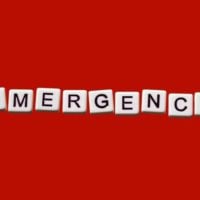Deadline: 23-Sep-21
The European Commission is calling for proposals for Supporting and Giving Recognition to Citizen Science.
Horizon Europe has a new level of ambition – to maximise the impact of EU research and innovation funding for European science, economy and the wider society.
It marks a paradigm change in the design of the EU R&I Framework Programmes (FP) from an activity-driven to an impact-driven programme.
The COVID-19 pandemic demonstrates the importance of R&I cooperation to deliver solutions to society’s most demanding needs. Delivering Europe’s recovery is a priority as are the green and digital twin transitions.
To match these challenges, a new level of ambition that links better R&I with the economy, as well as with education and training, is necessary to put the EU’s scientific knowledge to work.
The new ERA calls for deepening existing priorities and initiatives through new and stronger approaches. The green and digital transitions and the recovery call for cooperation between the Commission and the Member States.
They require the setting of new priorities, launching ambitious joint initiatives and developing common approaches between policies.
Scope
- Citizen Science is a rapidly emerging mode of research and innovation that shows huge promise in terms of collecting new qualities and quantities of data, harnessing collective intelligence, improving science-society literacy, and improving the relationship between science and society.
- However, financial support is not well adapted to the needs of small-scale and experimental activities and many citizen science initiatives that have proven their worth fail to sustain over the longer term.
- In addition, citizen science is under-recognised for its role in bridging between science and society, under-utilised where it is needed such as in relation to the Green Deal and the Sustainable Development Goals, and practitioners of citizen science are insufficiently recognised within the EU research and innovation system as conducting high-quality activities that can have numerous side-benefits.
Funding Information
Grant amount is equal to or greater than EUR 500 000 except for:
- public bodies (entities established as a public body under national law, including local, regional or national authorities) or international organisations; and
- cases where the individual requested grant amount is not more than EUR 60 000 (lowvalue grant).
Expected Outcomes
- Projects are expected to contribute to the following expected outcomes:
- Significant number of experimental citizen science initiatives kick-started;
- Significant number of citizen science initiatives supported to become sustainable;
- Significant number of newcomers to the Framework Programme and a significant number of citizens involved in co-producing scientific knowledge;
- Increased recognition of excellent citizen science initiatives throughout the European Research Area;
- Improved evidence base for making policy on citizen science.
- These targeted outcomes in turn contribute to medium and long-term impacts:
- Increased engagement of citizens with science and researchers with citizens;
- Increased public trust in science;
- Increased alignment of strategic research with society needs, expectations and values;
- Better understanding among citizens of the process of building scientific knowledge through experimentation;
- Increased capacity in the EU R&I system to conduct open science and to set it as a modus operandi of modern science;
- A more open and inclusive research and innovation system.
Eligibility Criteria
- Any legal entity, regardless of its place of establishment, including legal entities from non-associated third countries or international organisations (including international European research organisations) is eligible to participate (whether it is eligible for funding or not), provided that the conditions laid down in the Horizon Europe Regulation have been met, along with any other conditions laid down in the specific call topic.
- A ‘legal entity’ means any natural or legal person created and recognised as such under national law, EU law or international law, which has legal personality and which may, acting in its own name, exercise rights and be subject to obligations, or an entity without legal personality.
- To be eligible for funding, applicants must be established in one of the eligible countries, i.e:
- the Member States of the European Union, including their outermost regions;
- the Overseas Countries and Territories (OCTs) linked to the Member States;
- eligible non-EU countries:
- countries associated to Horizon Europe
- low- and middle-income countries.
For more information, visit https://bit.ly/3w7ozxY









































